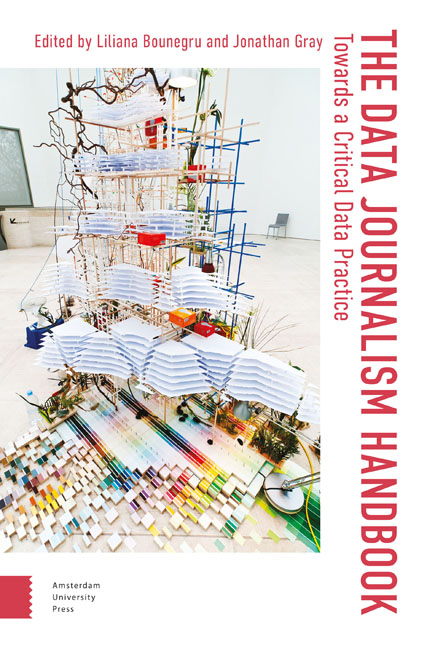47 - Organizing Data Projects With Women and Minorities in Latin America
Summary
Abstract
This chapter discusses organizing data projects with women and minorities in Latin America.
Keywords: analogue dataviz, minorities, women, Latin America, data journalism education, data visualization
Chicas Poderosas (Powerful Girls) is a transnational network of journalists, designers and developers working to develop digital media projects by and for women and marginalized communities throughout Latin America. As a designer with Chicas Poderosas, my work explores the role that design can play as an agent of culture and diversity, including through interdisciplinary and participatory research to explore cultural heritage, identity, the appropriation of territories, and the recognition of women and vulnerable populations.
This chapter examines the organization of several Chicas Poderosas initiatives in Colombia and Central America. As social and cultural inequalities in Colombia widen, it is important for minorities to be heard, to share their knowledge and to be treated as equals. To this end, the Chicas Colombia team has conducted a series of collaborative workshops focusing on data journalism and associated digital media practices. In the following sections I examine two methods that we used to facilitate participation in these workshops: Analogue data collection and analogue data visualization. These approaches may be relevant to the practices and cultures of data journalism in communities and regions where connectivity, devices and technological literacies cannot be taken for granted.
Analogue Data Collection
In May 2016, Chicas Colombia went to Villa España in Quibdó, Chocó, to work with women and teenagers belonging to the AJODENIU (Association of Displaced Youth) collective. Since 2002 this group has worked to defend the interests and rights of children displaced from Chocó, Río Sucio, Bojayá and Urabá. These regions are all difficult to access, with no Internet and few support services available. Therefore, the workshops began with analogue techniques to collect qualitative data. With this data, we worked to construct stories on issues such as forced displacement and teenage pregnancy, by recording spoken and written narratives
Building on these approaches, we worked with the United Nations Development Programme in Honduras in September 2018 to create a workshop with the Observatorios de Municipales de Convivencia y Seguridad Ciudadana (Municipal Observatories for Coexistence and Citizen Security). They worked with data on violent deaths of men and women and were interested in presenting data disaggregated by gender.
- Type
- Chapter
- Information
- The Data Journalism HandbookTowards A Critical Data Practice, pp. 344 - 348Publisher: Amsterdam University PressPrint publication year: 2021



